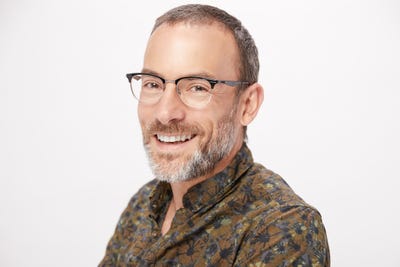Jinka’s plant-based seafood is a family affair
With an eye on sustainability, Co-Founder Alberta Liao turns to her grandmother to create Jinka’s products. Learn more about this NEXTY Award-winning brand.
January 12, 2024

As with many great culinary creations, the plant-based seafood company Jinka’s fare began in grandma’s kitchen.
CEO and Co-Founder Alberta Liao had recently walked away from her career in real estate. As she looked for what’s next, she put her hand up to help with her mother’s and grandmother’s nonprofit summer camp.
“Because I love food, they put me in charge of the mid-afternoon snack,” said Liao. “The theme that year was sustainability, so I asked, ‘What is something that tied back into the topic of sustainability that I would personally eat?’”
Recalling the tuna fish sandwiches she ate as a kid, she brought her quandary to her grandmother Cheng Chan Ho, a 60-year vegetarian who used to own a successful noodle shop in her native Taiwan. The two went to work in Ho’s kitchen. When the resulting plant-based tuna sandwiches delighted not just the kids, but their parents, Liao knew that they were on to something.
Today, Jinka, a play on jiànkāng, the Chinese word for “healthy,” offers plant-based tuna as well as crab poppers and calamari. Its calamari won the Expo East 2023 NEXTY Award for Best New Meat Alternative.
Liao spoke with New Hope Network about Jinka and her multi-generational collaborations.
The initial R&D was in your grandmother's kitchen, but I'm guessing you took a more commercial route after that?
Alberta Liao: We develop in our commercial kitchen. But whenever we do small-scale R&D products that we want to try internally, we sometimes do it in my grandma's kitchen.
Since I can remember, there’s been solid Asian representation in terms of vegetarian restaurants, especially when it comes to simulated meat. Is that cultural?
AL: It's very cultural. I think Taiwan has always been at the forefront, almost a powerhouse for making a lot of these vegetarian products. Going back to Taiwan, there's a vegetarian option on every restaurant. It's not like, "I wanna go to this restaurant, but we have to find if there's a vegetarian option for a vegetarian friend." There's always that vegetarian option there because it's so normal already.
Calamari has a very distinct mouthfeel. How did you go about finding that?
AL: Again, thank you to my grandma. It came out from a trip to Taiwan. We were eating at a vegetarian restaurant and trying their yam cake, which is like a konjac cake. We're like, "This has a nice texture and mouthfeel to it. Great fiber, low in calories as well."
Konjac was starting to make its way into the US with shirataki noodles, so we were like, "Let's try using this as a base." From there, we fortified it with pea protein, we added more fiber as well with chia seeds. Whenever we create our products, we want them to be healthy as well as mimicking the taste and texture of the actual product.
You used pea protein in the calamari, but soy in your other products. Why?
AL: We’ve had a lot of consumers say, "We love your products, but do you guys have anything that doesn't have soy or wheat in it?" When we were creating our new calamari, we really wanted to keep the consumer feedback in mind. That's why, instead of using soy, we ended up using pea protein, and then trying to make a product that is also free of all major allergens.
Using an extra ingredient like that adds logistical challenges.
AL: Yeah, definitely. Logistically, it makes it a little bit more difficult, but it's really the health of the consumers that's the most important to us.
Using artificial ingredients or artificial preservatives to extend that shelf life, we really try to avoid that. Even though logistically it might be a little bit more difficult to ship our products out in a refrigerated section, dealing with the spoilage, we really wanted to keep our products as natural as possible.
I think it's definitely helped us in the long run because our consumers do see that we're doing our best to give them a product that is not only healthy for their mind and body, but for the environment as well.
How so?
AL: A lot of people started turning to squid as a more sustainable option. But as with all things, too much of something isn't good, right? So now calamari is being overfished. They're not able to replenish them as fast as we're eating them. That's why it was the next product that we wanted to make. After that, the next seafood product that we are thinking about tackling is shrimp. It just seems like it's a natural course, part of our seafood journey.
Read more about:
SustainabilityAbout the Author
You May Also Like


.jpg?width=700&auto=webp&quality=80&disable=upscale)

